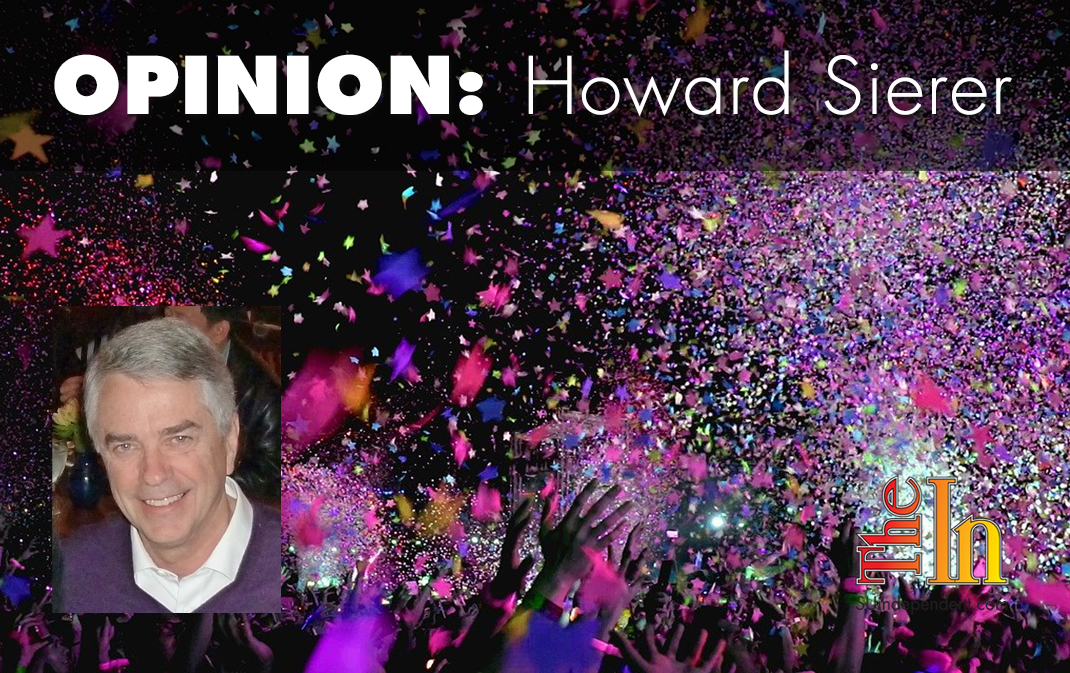
The best decade ever
Would you be shocked if I told you that the last 10 years have been the best decade in human history?
Yes, I know that the last 10 years started with the Great Recession. Syria’s civil war has been killing thousands for the entire decade, prompting a flood of refugees to flow into Europe. We’ve had impoverished Latin Americans overwhelming facilities at our southern border. And we had the temerity to elect a second-rate reality show star as president.
So what could possibly be good enough about the past decade to claim it’s been the best in history?
The answer, of course, is that almost all reported news is bad news. The ongoing tide of good news is no news, or at least it doesn’t make the headlines that grab attention.
Every now and then, I stumble across books or articles summing up the broad sweep of good news but likely not seen by most of us. My thanks to a regular reader who steered me to an article by England’s Matt Ridley entitled “The Best Decade in Human History.” He explains that “we are living through the greatest improvement in human living standards in history.”
But what about the Great Recession, Syria, and Trump? Bad things always happen and probably always will, but focusing on them misses the improvements being experienced by a significant majority of the world’s population.
Fifty years ago, 60 percent of the world lived in extreme poverty; today, for the first time in history, fewer than 10 percent do. Measured on a global scale, inequality is dropping significantly as Asia and Africa are growing faster than North America and Europe.
Ridley notes that famines have virtually disappeared while malaria, polio, and heart disease are all falling worldwide. Child mortality is at a record low. Yet with family sizes dropping dramatically, world population is projected to peak in the next several decades and then trend downward.
Nine years ago, Ridley claimed that “the ecological footprint of human activity is probably shrinking” and that “we are getting more sustainable, not less, in the way we use the planet.” By that, he meant that even though the world’s population and economy would grow, we’d learn how to reduce what we take from the planet.
Ridley gives a number of current examples of improvements that use fewer resources than their predecessors:
—Cell phones have replaced cameras, radios, flashlights, compasses, maps, calendars, watches, CD players, and newspapers.
—LED light bulbs use about one-quarter as much power as incandescent bulbs.
—Modern buildings use less steel, and most of it is recycled.
—Offices aren’t paperless, but they’re getting closer.
—Drink cans that used 85 grams of aluminum in 1959 use 13 grams today.
Rockefeller University environmental scientist Jesse Ausubel reports that “Nature Is Rebounding,” primarily due to improved agricultural methods. Food production uses 65 percent less land and far less water to produce the same amount of food compared with 50 years ago.
“The USA and the world are at peak farmland,” Ausubel declares, “not because of exhaustion of arable land, but because farmers are wildly successful in producing protein and calories.” Ausubel forecasts that land area the size of India will be released from food production worldwide by 2050.
Andrew McAfee, a Harvard Ph.D. and professor at MIT’s Sloan School of Management, explains the source of all this good news in his recent book, “More from Less.” McAfee attributes our shrinking footprint on the Earth’s resources to what he calls the “four horsemen.”
McAfee’s first two horsemen are technological progress and capitalism, despite the fact that capitalism is readily identified with much of the environmental despoliation of the 19th and 20th centuries.
He explains that “capitalism’s endless quest for profit is also a relentless search for cost reduction and resources cost money.” Companies in competitive environments are quick to replace expensive natural resources with technology as in Ridley’s cell phone example.
McAfee identifies two other horsemen: public awareness and responsive government. He says, “Once people become aware of the harms of pollution and the tragedy of species loss, they demand action, and responsive governments step in to force pollution reductions and place habitats and animals outside the market.”
Ridley concludes by predicting that in coming decade, “we will see less poverty, less child mortality, and less land devoted to agriculture in the world.” I’ll bet on that.
Keep your eye out for underreported good news.
The viewpoints expressed above are those of the author and do not necessarily reflect those of The Independent.
How to submit an article, guest opinion piece, or letter to the editor to The Independent
Do you have something to say? Want your voice to be heard by thousands of readers? Send The Independent your letter to the editor or guest opinion piece. All submissions will be considered for publication by our editorial staff. If your letter or editorial is accepted, it will run on suindependent.com, and we’ll promote it through all of our social media channels. We may even decide to include it in our monthly print edition. Just follow our simple submission guidelines and make your voice heard:
—Submissions should be between 300 and 1,500 words.
—Submissions must be sent to editor@infowest.com as a .doc, .docx, .txt, or .rtf file.
—The subject line of the email containing your submission should read “Letter to the editor.”
—Attach your name to both the email and the document file (we don’t run anonymous letters).
—If you have a photo or image you’d like us to use and it’s in .jpg format, at least 1200 X 754 pixels large, and your intellectual property (you own the copyright), feel free to attach it as well, though we reserve the right to choose a different image.
—If you are on Twitter and would like a shout-out when your piece or letter is published, include that in your correspondence and we’ll give you a mention at the time of publication.



